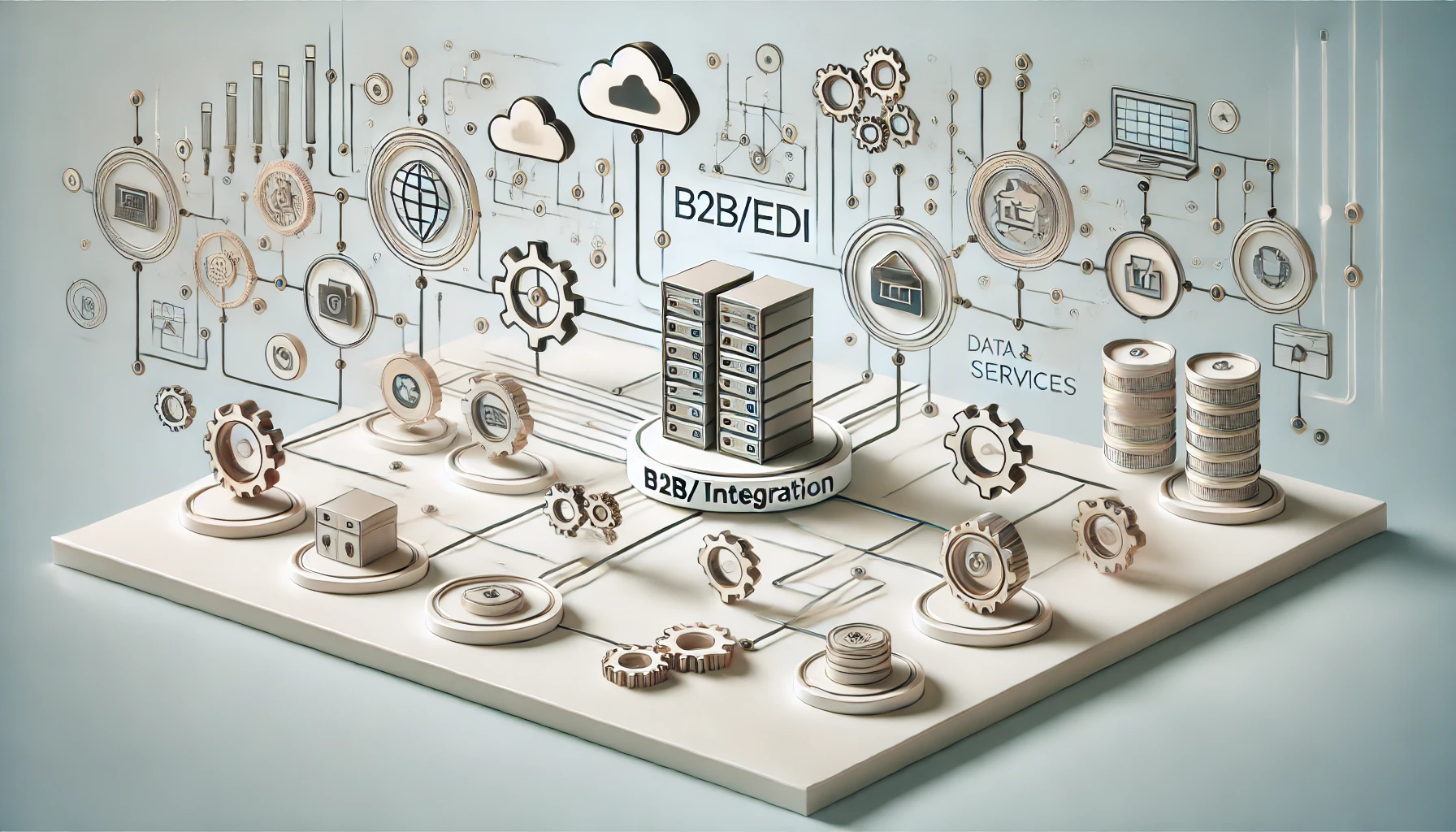When it comes to B2B/EDI integration services, the spectrum is vast, ranging from on-premises software to cloud-based platforms, managed services, API integrations, and hybrid solutions. Each offers its unique advantages and challenges, catering to diverse business needs and objectives. Understanding the nuances of these integration types can significantly impact your operational efficiency and strategic decision-making. So, whether you are navigating the complexities of traditional systems or exploring the possibilities of cutting-edge solutions, knowing the various types of B2B/EDI integration services is key to optimizing your business processes and staying ahead in the competitive market landscape.
Integration Formats
When it comes to B2B/EDI integration services, one of the crucial aspects to consider is the variety of integration formats available. Protocol options and communication methods play a significant role in determining the most suitable integration format for your business needs. These formats dictate how data mapping and document exchange will occur between your systems and those of your trading partners.
Different integration formats offer various ways to communicate and exchange information electronically. For instance, some B2B/EDI integration services support protocols like AS2, FTP, or API for secure data transmission. Each protocol has its strengths and weaknesses; therefore, understanding which one aligns best with your requirements is essential. Additionally, communication methods such as synchronous or asynchronous messaging can impact how quickly information is exchanged between systems.
Choosing the right integration format is vital to ensure seamless data mapping and efficient document exchange between your organization and partners. By evaluating protocol options and communication methods, you can select an integration format that optimally supports your B2B/EDI integration processes.
Data Standards
Data standards are a fundamental component of B2B/EDI integration services, providing a common framework for structuring and interpreting data exchanged between business partners. When it comes to industry compliance, adhering to specific data standards ensures that businesses meet the regulatory requirements set forth by governing bodies. These standards outline the format, structure, and rules for exchanging data, promoting consistency and accuracy in information exchange.
Data mapping plays a crucial role in data standards implementation. It involves the process of creating connections between data elements in different formats to enable seamless communication between disparate systems. By mapping data fields from one format to another, businesses can ensure that information is accurately translated and understood by both parties involved in the data exchange.
Service Categories
Within the realm of B2B/EDI integration services, Service Categories play a critical role in defining the specific offerings and functionalities provided to facilitate seamless electronic data interchange between businesses. These categories encompass a range of services tailored to meet the diverse needs of organizations seeking efficient data exchange solutions. One key aspect within Service Categories is vendor partnerships, where businesses collaborate with service providers to ensure system compatibility and effective integration processes.
Process automation is a central theme in Service Categories, enabling businesses to streamline their operations and reduce manual intervention in data exchange tasks. Through automation tools and technologies, companies can enhance efficiency optimization by automating routine processes, reducing errors, and accelerating data transmission speeds. This results in improved productivity and faster decision-making capabilities, ultimately driving better business outcomes.
Solution Varieties
Various Solution Varieties in B2B/EDI integration services encompass a diverse range of tools and technologies aimed at facilitating seamless electronic data interchange between businesses. When considering these solutions, it’s crucial to address implementation challenges, security measures, efficiency improvements, and best practices. Here are some key solution varieties to explore:
- On-Premises Software: Traditional software installed and managed on-site.
- Cloud-Based Platforms: Hosted solutions accessible via the internet.
- Managed Services: Outsourcing integration tasks to a third-party provider.
- API Integrations: Leveraging Application Programming Interfaces for connectivity.
- Hybrid Solutions: Combining on-premises and cloud-based systems for flexibility.
Implementing these solutions comes with its challenges, including ensuring data security, optimizing processes for efficiency improvements, and following best practices to guarantee a successful integration. By carefully selecting the right solution variety and addressing these factors, businesses can streamline their B2B/EDI processes effectively.
Integration Types
When it comes to B2B/EDI integration services, understanding the different types of integration methods is crucial for businesses looking to streamline their operations. Integration methods encompass various implementation strategies that help organizations connect their systems for seamless communication. There are several technology options available to facilitate these integrations, including point-to-point connections, Electronic Data Interchange (EDI), Application Programming Interface (API) integrations, and cloud-based integration platforms.
Point-to-point connections involve establishing direct links between specific systems, making data exchange efficient but limited in scalability. EDI integration follows standardized formats for document exchange, ideal for industries like retail, manufacturing, and healthcare. API integrations allow real-time data sharing between applications, offering flexibility and customization options. Cloud-based integration platforms provide centralized connectivity, enabling businesses to integrate diverse systems effortlessly.
Each integration type has its strengths and weaknesses, making it essential for businesses to evaluate their specific needs and industry applications before selecting the most suitable method to optimize their B2B/EDI integration services.
Frequently Asked Questions
How Can B2b/Edi Integration Services Improve Supply Chain Efficiency?
To enhance supply chain efficiency, b2b/edi integration services streamline communication, optimize processes, and implement technology for improved data accuracy. By embracing these solutions, your organization can drive operational excellence and foster seamless collaboration with partners.
What Security Measures Are in Place to Protect Sensitive Data?
To protect sensitive data, robust security measures like data encryption and access controls are implemented. These measures ensure that information transmitted through B2B/EDI integration services remains secure, safeguarding against unauthorized access and data breaches.
Can B2b/Edi Integration Services Be Customized to Specific Industry Needs?
Yes, b2b/edi integration services can be tailored to meet your specific industry needs. With integration flexibility, you can customize the services to align with the unique requirements of your industry, ensuring optimal efficiency and effectiveness.
Are There Any Ongoing Maintenance or Support Services Provided?
Yes, ongoing maintenance and support services are typically included with B2B/EDI integration solutions. These services ensure the smooth operation of your integration, address any issues promptly, and provide necessary updates to keep your systems running efficiently.
How Does B2b/Edi Integration Impact Overall Business Scalability?
When you integrate B2B/EDI, scalability improves through streamlined processes, reducing manual tasks. This increases productivity and cost savings by automating transactions. With enhanced efficiency, your business can grow without major system overhauls, adapting easily to expansion.



